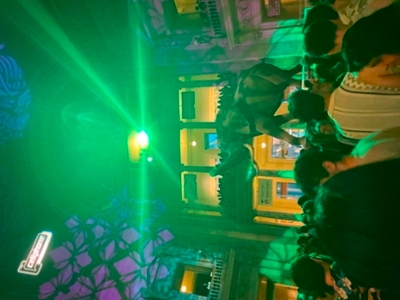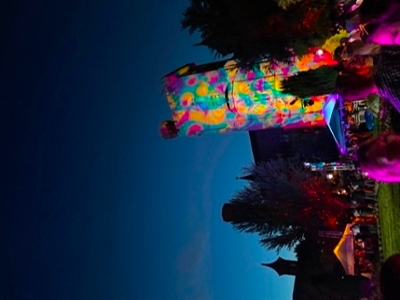Week 4: (How) To Secure Peace?
 I spent most of this week gathering sources for a strategy report on how Russian accountability for its war time atrocities in Ukraine can be negotiated in eventual peace agreements. If you stop and process that idea—you may question it. How can accountability for crimes be negotiated? Shouldn’t it an absolute that a perpetrator answer for his crimes? The only sort-of answer I have is that accountability can take many forms, the actors and stakeholders at the time decide on what it looks like, and it has been pursued through different mechanisms throughout recent history.
I spent most of this week gathering sources for a strategy report on how Russian accountability for its war time atrocities in Ukraine can be negotiated in eventual peace agreements. If you stop and process that idea—you may question it. How can accountability for crimes be negotiated? Shouldn’t it an absolute that a perpetrator answer for his crimes? The only sort-of answer I have is that accountability can take many forms, the actors and stakeholders at the time decide on what it looks like, and it has been pursued through different mechanisms throughout recent history.
In talks and meetings, I’ve been introduced to the evolution of the idea of two-track framework for peace: a justice track and a peace track. “Justice objectives” would include ensuring perpetrators of atrocity crimes are held accountable through some justice system—specially created or already existing. “Peace objectives” look like achieving an end to hostilities and agreeing on measures to rebuild and protect against future aggression or violence. Some see justice and peace as the same objective achieved by the same mechanisms, and that you cannot have peace without justice; others argue they should be pursued separately.
My research has taught me the current efforts to hold Russia accountable for its crimes are significant. The world has mobilized. There are human rights documenters and reporters on the ground, collecting evidence of possible war crimes and human rights violations occurring in Ukraine. Other groups support Ukrainian civil servants by providing expertise on how to properly document this kind of evidence. Foreign governments and international and foreign NGOs are building the capacities of Ukrainian court systems, judges, and prosecutors through training, investigation support, and recommendations for best practices. In addition, governments, various NGOs, legal scholars, and experts are working to create the “Special Tribunal for Ukraine on the crime of aggression”.
 I was able to attend a meeting hosted by USIP of Ukrainian civil society groups and European collaborators on their recently finished report of possible endgame scenarios for Russia’s war in Ukraine. The report highlighted what different outcomes (depending on the actions of foreign governments and Putin, for example) would mean for Ukraine and the world. It was a discussion fueled by an urgent resolve to achieve a Ukrainian victory.
I was able to attend a meeting hosted by USIP of Ukrainian civil society groups and European collaborators on their recently finished report of possible endgame scenarios for Russia’s war in Ukraine. The report highlighted what different outcomes (depending on the actions of foreign governments and Putin, for example) would mean for Ukraine and the world. It was a discussion fueled by an urgent resolve to achieve a Ukrainian victory.
In DC this week, the Smithsonians celebrated the summer solstice by staying open until midnight. There were DJs, light shows, and games, and it felt like the whole city came out for this cool event!